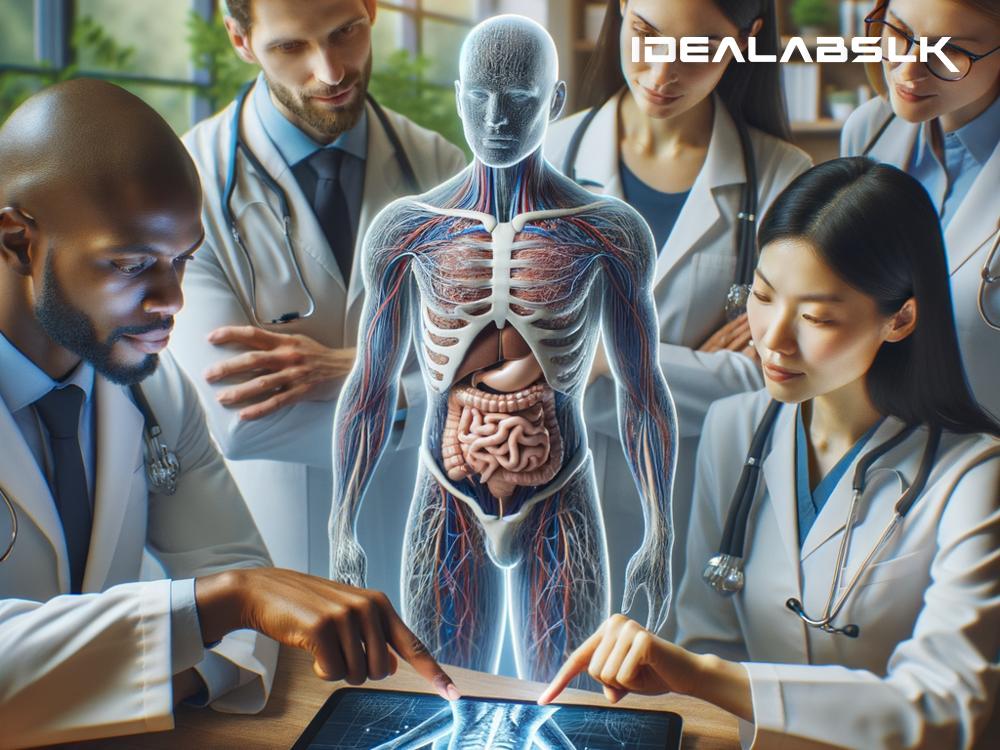In the ever-evolving world of technology, healthcare has received a transformative boost through the concept of "digital twins." This innovative approach, while it sounds like something straight out of a science fiction movie, is dramatically changing how doctors and healthcare professionals provide care. Simply put, a digital twin is a virtual replica of a patient, created using extensive data collected from various sources about that person's health and body. This digital double lives in the computer world and can be a game-changer in predicting, diagnosing, and treating health conditions more effectively. Here's how digital twins are reshaping healthcare, making it more personalized, predictive, and precise.
Personalized Medicine at Its Best
One of the most significant advantages of digital twins is the personalization they bring to the table. Instead of relying on general treatments designed to work for the average person, healthcare providers can use these virtual replicas to create completely customized care plans. By analyzing the specific characteristics of a patient's digital twin, doctors can predict how they will react to different treatments, medications, or surgical procedures. This means healthcare can be more about preventing and curing diseases in a way that is perfectly tailored to the individual, dramatically increasing the chances of successful outcomes.
Predictive Insights, Proactive Healthcare
Imagine being able to forecast a potential health issue before it even occurs. Digital twins make this possible by using data to simulate what could happen in the future. For example, by analyzing the virtual replica of a person's heart, specialists can predict the risk of heart disease and take measures to prevent it. This predictive capability is a massive leap towards proactive healthcare, where the focus shifts from treating illnesses to preventing them before they arise.
Enhancing Drug Development and Testing
Creating new medicines is a complex, time-consuming, and costly process, with no guarantee of success. However, digital twins are set to revolutionize this landscape. By testing drugs on virtual replicas instead of real patients, researchers can significantly speed up the development process and enhance safety. This approach not only reduces the need for early-stage human trials but also provides insights into how different people might respond to the medication based on their unique digital twin. As a result, drug development becomes faster, cheaper, and more effective.
Training and Education
Digital twins also have significant implications for training and educating healthcare professionals. Medical students and trainees can practice procedures on virtual patients, gaining valuable experience without the risk of causing harm. This hands-on approach, combined with the ability to simulate various scenarios, prepares future healthcare providers in a safe and controlled environment. It also allows for continuous learning, as professionals can update their skills by working with new digital twins that reflect the latest medical advancements and patient data.
Challenges and Considerations
Despite the tremendous promise of digital twins in healthcare, there are challenges to consider. Data privacy and security are paramount, as creating digital replicas requires accessing and analyzing sensitive personal health information. Ensuring that this data is protected against breaches is crucial to maintaining patient trust. Additionally, the technology demands significant computational resources and expertise, which could limit its accessibility, particularly in resource-constrained settings.
The Future Is Here
While the concept may still seem futuristic, digital twins are already making inroads in healthcare. From improving patient care through personalized and predictive approaches to enhancing drug development and medical training, the potential is enormous. As technology continues to advance and more healthcare providers adopt this approach, digital twins could become a staple in the medical world.
The journey toward widespread adoption will undoubtedly involve addressing security, privacy, and resource challenges. However, the promise of significantly improved patient outcomes, reduced healthcare costs, and a shift towards proactive and preventive care is a compelling force driving the development and integration of digital twins into healthcare.
In conclusion, digital twins represent a bold step forward in the quest for better healthcare. By creating virtual replicas of patients, the medical field can offer more personalized and effective treatment plans, predict and prevent diseases, accelerate drug development, and provide better training for healthcare professionals. As we look to the future, the continued evolution of digital twins holds the promise of transforming healthcare into a more efficient, effective, and patient-centered system.

